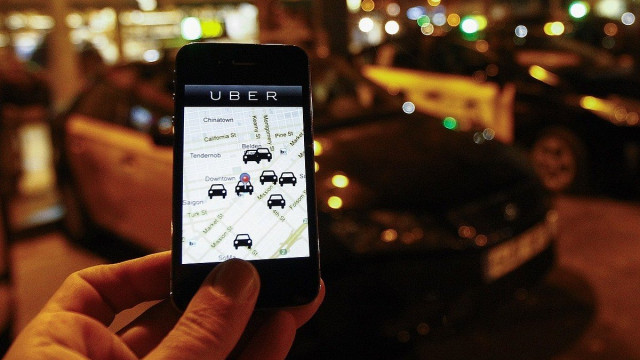It’s official: Uber launches in Pakistan
Service is operational in Lahore, but will eventually launch in Karachi and Islamabad as well

PHOTO: AFP
“We’re extremely excited to be here, there’s huge potential in this market and people have welcomed us with open arms,” explains Loic Amado, international launcher at Uber.
“Twenty per cent of all ecommerce transactions happen in Lahore, which is why we’re here first. We’re looking forward to filling a gap in the existing transportation network.”
The ride-hailing behemoth will focus on Lahore for now, but there are plans to unlock more cities in the near future. Karachi is an obvious target while Islamabad is also likely to be on the roadmap as a more affluent clientele awaits.
Pakistani entrepreneurs launch 'Uber for rickshaws'
Loic claims there’s been overwhelming interest from the driver side as well, with thousands of applications. The company will be working with both private car owners as well as existing rent-a-car providers which will utilise their idle inventory.
All drivers shall be subjected to thorough background and verification checks, including car registration, police verification, and driving licenses. They’ll also have to attend a mandatory sexual harassment seminar.

“I often compare it to cities like Cairo where we’re generating 2,000 job opportunities a month. We can achieve that very soon in Lahore and the rest of Pakistan as well,” adds Loic.
While interest in Uber’s anticipated launch in Pakistan has been massive, there’s also a sense of nervousness due to incidents like the rape of a female passenger in India. Loic is quick to drive home the point that they’re assessing both passenger and driver security very seriously.
“We’re in conversation with local law enforcement agencies and are open to developing procedures, so that if something happens they can be involved immediately. We’ve developed something similar in India as well by working with local governments,” he affirms.
Cash payments
In what is a first, Uber will be launching in Pakistan by accepting both cash and card payments. Cash is accepted for rides in Saudi Arabia, Egypt, and India but this is the first time Uber will be accepting them from the outset. It’s a smart move considering the fact that few people use credit cards in the country and cash reigns supreme.
Uber also plans to integrate mobile payments and mobile wallets, but these haven’t been finalised yet.
Uber subsidiary fined $7.6m in California
Pricing will be extremely competitive. Loic says they’re aiming to shift people away from using tuk-tuks, the preferred mode of public transportation, to a “safer option.”
Base fares start at US$0.95, with each kilometer priced at US$0.13 and US$0.04 per minute for the time that the car is in use. This means a 10-kilometer ride will be priced at approximately US$2.60.
Lahore riders will only be offered UberGO, with UberBlack and UberLux arriving at a later stage. UberPool and UberEats may also be in the pipeline.
Uber’s primary rival in Pakistan is likely to be Dubai-headquartered Careem, which raised US$60 million last year and has been rivaling it in cities like Cairo, Riyadh, and Abu Dhabi.
Unlike Uber, Careem accepts requests for rides through a phone hotline and also takes advance bookings.
Careem raises $60m, but is that enough to compete with Uber?
Loic says Uber will stick to its model of rides requested through the app only and for immediate departures. It’s trying to meet the globally-accepted standard of an ETA of five minutes.
News of Uber’s launch will be pleasing to residents of Lahore, but what is music to their ears is the announcement that all rides on the weekend are on the house. “The idea is to provide a completely new way of getting around,” says Loic.
The article originally appeared on Tech in Asia



















COMMENTS
Comments are moderated and generally will be posted if they are on-topic and not abusive.
For more information, please see our Comments FAQ